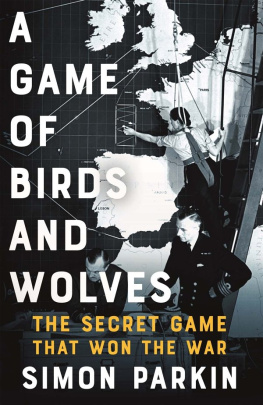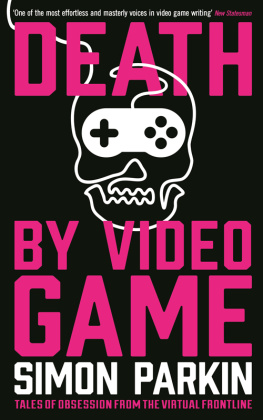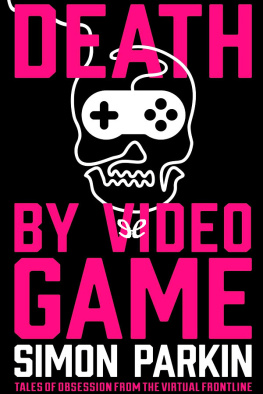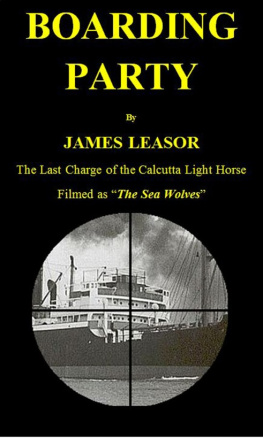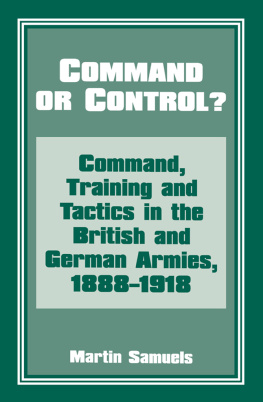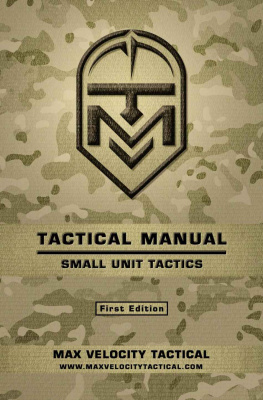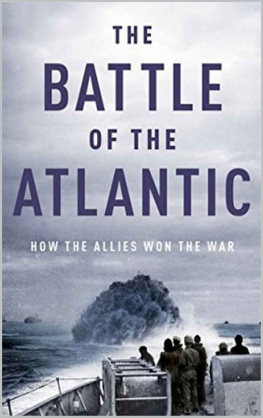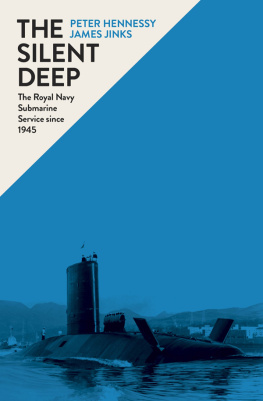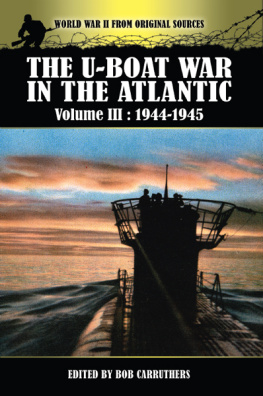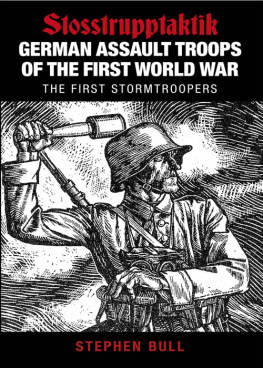Simon Parkin - A Game of Birds and Wolves
Here you can read online Simon Parkin - A Game of Birds and Wolves full text of the book (entire story) in english for free. Download pdf and epub, get meaning, cover and reviews about this ebook. year: 2019, publisher: Hodder & Stoughton, genre: History. Description of the work, (preface) as well as reviews are available. Best literature library LitArk.com created for fans of good reading and offers a wide selection of genres:
Romance novel
Science fiction
Adventure
Detective
Science
History
Home and family
Prose
Art
Politics
Computer
Non-fiction
Religion
Business
Children
Humor
Choose a favorite category and find really read worthwhile books. Enjoy immersion in the world of imagination, feel the emotions of the characters or learn something new for yourself, make an fascinating discovery.
- Book:A Game of Birds and Wolves
- Author:
- Publisher:Hodder & Stoughton
- Genre:
- Year:2019
- Rating:5 / 5
- Favourites:Add to favourites
- Your mark:
- 100
- 1
- 2
- 3
- 4
- 5
A Game of Birds and Wolves: summary, description and annotation
We offer to read an annotation, description, summary or preface (depends on what the author of the book "A Game of Birds and Wolves" wrote himself). If you haven't found the necessary information about the book — write in the comments, we will try to find it.
A Game of Birds and Wolves — read online for free the complete book (whole text) full work
Below is the text of the book, divided by pages. System saving the place of the last page read, allows you to conveniently read the book "A Game of Birds and Wolves" online for free, without having to search again every time where you left off. Put a bookmark, and you can go to the page where you finished reading at any time.
Font size:
Interval:
Bookmark:
Simon Parkin is an award-winning British writer and journalist. He is a contributing writer for the New Yorker, game critic for the Observer newspaper and a regular contributor to the Guardians Long Read and other publications, writing investigative pieces, profiles, criticism and essays on a variety of subjects, often around culture, video games and technology. He lives in West Sussex.
Death by Video Game

www.sceptrebooks.co.uk
First published in Great Britain in 2019 by Sceptre
An Imprint of Hodder & Stoughton
An Hachette UK company
Copyright Simon Parkin 2019
The right of Simon Parkin to be identified as the Author of the Work has been asserted by him in accordance with the Copyright, Designs and Patents Act 1988.
Cover image: Cover photograph Popperfoto / Getty Images
For quotes reproduced from the speeches, works and writings of Winston S. Churchill: Reproduced with permission of Curtis Brown, London on behalf of The Estate of Winston S. Churchill. The Estate of Winston S. Churchill
All rights reserved.
No part of this publication may be reproduced, stored in a retrieval system, or transmitted, in any form or by any means without the prior written permission of the publisher, nor be otherwise circulated in any form of binding or cover other than that in which it is published and without a similar condition being imposed on the subsequent purchaser.
A CIP catalogue record for this title is available from the British Library
Hardback ISBN 9781529353037
eBook ISBN 9781529353051
Hodder & Stoughton Ltd
Carmelite House
50 Victoria Embankment
London EC4Y 0DZ
www.sceptrebooks.co.uk
For Estelle Parkin
May you find thrilling answers
in the games you play
Contents
Gilbert Roberts, a retired British naval officer turned game designer, stepped onto the gangway leading up to the ocean liner, then immediately stopped. If he was not mistaken the man making his way down the plank, labouring under the weight of a suitcase, was Karl Doenitz, a German admiral who, twenty-three days earlier, following the suicide of Adolf Hitler, had become Nazi Germanys new head of state.
The men drew close, then stopped in front of one another, suspended, as they had been for much of the war, in a liminal space, neither fully on land nor fully at sea. For a moment, in the mid-afternoon sunlight, the creak and slop of the dockside was the only sound.
Each man looked at least one size too small for his uniform. It was misfortune, not restraint that had helped them avoid the thickening torsos worn by most who reach a high rank and all its associated comforts. For forty-four-year-old Roberts, a violent battle with illness had left him wheezy. At eight stone and five feet eleven, he was also perilously underweight. Doenitz, meanwhile, had spent the month bearing the pressure of trying to broker the surrender of his beleaguered nation. Then there was the unquenchable pain of having lost not one but two sons to war within a year of each other. Moreover, both the boys had died while serving in the U-boat division, which Doenitz had founded and tenaciously commanded at every step of his rise. He had been twice responsible for their lives: as their father, and as their commander.
Catastrophe and a talent for endurance were not all that the two men shared. For the last three years Roberts and Doenitz had also been adversaries in a vast and deadly game of U-boats and battleships, played out on the Atlantic Ocean, an arena so treacherous and capricious that it was considered, by all those who fought there, to be the third adversary in their war.
Roberts, having been discharged from the navy in the summer of 1938, the day after his tuberculosis was diagnosed, had been brought back into service seven months into the war. Game designer was not a job description used by the navy at the time, but this was the nature of the role given to Roberts by Britains prime minister, Winston Churchill. He was to create a game that would enable the British to understand why they were losing so many ships to German U-boat attacks. Teamed with a clutch of bright, astute young naval women known as Wrens, many of whom were barely out of school, Roberts had, in the months that followed, restaged countless ocean battles using his game. Through play he had developed anti-U-boat tactics that, once proven, had been taught to thousands of naval officers before they headed to sea.
Doenitz also knew the curious value of play during wartime. He too had designed games to test and refine tactics that, from his HQ in the bunker beneath an elegant nineteenth-century villa in occupied France, could be issued to his beloved U-boat captains. These would aid the crews in their ultimate aim: to sink Allied merchant ships, thereby preventing food and supplies from reaching British shores, in order to starve the islanders and win the war.
Both men had orchestrated their feints and attacks by shunting wooden tokens around maps of the ocean, known as plots, like pieces on a watery chessboard. The stakes were mortal; many thousands of Britons and Germans had died, including men whom Roberts and Doenitz had each personally known and instructed.
Good afternoon, Admiral, said Roberts, who was flanked by a young American
Doenitz, who immediately recognised his rival from a photograph printed in a British magazine article the previous year, nodded respectfully.not his theories about secret U-boat tactics, deduced via the crucible of his games, were accurate.
In his pocket Roberts, a fluent German-speaker, felt his Ikes pass, a document issued and signed by the general of the US Army, Dwight D. Eisenhower, that bestowed on him authority to interrogate anybody related to his investigation. How Roberts longed to quiz Doenitz about the U-boat tactics the wolfpacks, the torpedo attacks, the underwater getaways and, moreover, to discover how much the admiral knew about the countermeasures he and the Wrens had designed. But Doenitz was needed in Luxembourg, where he was to join the other captured Nazi Party and SS leaders, army chiefs and ministers and await trial for war crimes.
We will supply you with everything you need to make your visit pleasant and efficient, Doenitz said, before continuing down the ramp towards the pier.
As an armed Roberts and the FBI interrogator boarded the ship. It was called the Patria , the last vestige, as the name implied, of Hitlers crumbled Fatherland.
Aboard the liner, which could accommodate close to six hundred crew and passengers, Roberts was shown to his quarters. It was a first-class suite comprising a sleeping cabin, private bathroom and sitting room, where he planned to interview surrendered U-boat officers. As he walked through the door, Roberts was greeted by a handsome young German naval officer, with slicked hair and a determined brow. The man introduced himself as Heinz Walkerling. He was, he explained, to be Roberts assistant for the duration of the mission.
Walkerling, who had celebrated his thirtieth birthday just four days earlier,I man set up his tape recorder, which was disguised as a suitcase, under Roberts bunk, Walkerling asked whether his new boss had a gun to keep him safe.
No, said Roberts, who had turned down the offer of a weapon before leaving London.
At five oclock that afternoon, Roberts conducted his first interrogation, with Doenitzs chief of staff, the man responsible for the organisation and operation of all U-boats. After two hours intensive questioning, Roberts switched off his tape recorder and, accompanied by Walkerling, made his way to the officers mess for some food.
Font size:
Interval:
Bookmark:
Similar books «A Game of Birds and Wolves»
Look at similar books to A Game of Birds and Wolves. We have selected literature similar in name and meaning in the hope of providing readers with more options to find new, interesting, not yet read works.
Discussion, reviews of the book A Game of Birds and Wolves and just readers' own opinions. Leave your comments, write what you think about the work, its meaning or the main characters. Specify what exactly you liked and what you didn't like, and why you think so.

